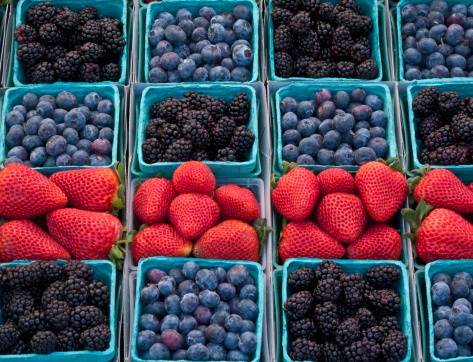Do you buy or eat organic, or at least try to? What is it about the label “organic” that drives you to make this choice? It’s probably the belief that less pesticides and chemicals are used in farming the product and that it’s healthier all around, making it worth the extra cost.
A recent study concluded that consumers have spent years paying over the odds for organic food due to the false belief that they are healthier and safer than regular, “non-organic” foods. The Organic Marketing Report states that consumer research proved that animal welfare and sustainability were not the key driving forces for buying organic products, Instead, customers choose organic due to “perceived safety concerns tied to pesticides, hormones, antibiotics, and GMO’s.” However, organic products might not actually provide this kind of safety.
The USDA has explicitly stated that its organic seal does not have to do with the food’s measure of quality or nutrition, but consumer surveys consistently show that shoppers do not realize this, and instead believe the seal does ensure these components. The report’s authors feel that these misconceptions have been exploited by organic marketers and organizations funded by the organic food industry. Such advocacy groups include the Center for Food Safety, Food & Water Watch, and the Natural Resources Defense Council.
The report’s outcomes are based on more than 200 published academic, industry, and government report. Also helping to find these results are news reports, social media and account evaluations, marketing materials, and advocacy reports from the years 1988 to 2014. s, No surprise, the report’s findings are being criticized by the organic food lobby.
The Organic Marketing Report authors state, “Consumers have spent hundreds of billions of dollars purchasing premium-priced organic food products based on false or misleading perceptions about comparative product food safety, nutrition, and health attributes. The research found extensive evidence that widespread, collaborative, and pervasive industry marketing activities are a primary cause for these misperceptions.”
However, stakeholders in the organic food industry are rebutting these claims, saying that these results are an attempt to “undermine the value and benefits of organic food in favor of a system of monoculture and “genetic engineering.”
There are over 18,000 organic farmers, ranchers, and food-makers. It’s not assured that organic foods are more nutritious, but organic foods do give consumers more information about the produce. Most people choose organic because of concern for the environment and wanting to avoid foods derived from animals that have been “pumped full of antibiotics and growth hormones,” as Katherine Paul, associate director of the Organic Consumers Association, put it.
Whether you are an organic eater or not, everyone does things for their own reasons, no matter what a report says or doesn’t says. If it makes you feel better to buy the produce from under the “organic” sign at the grocery market, than you should keep doing that. If not, then save a few pennies and don’t. Whatever makes you happy, whatever makes you feel your healthiest, that is what matters most and what you should do.
Here’s to happy and healthy eating, no matter what you believe.
(Photo credit by Bill Boch for Getty Images)


Comments
Loading…